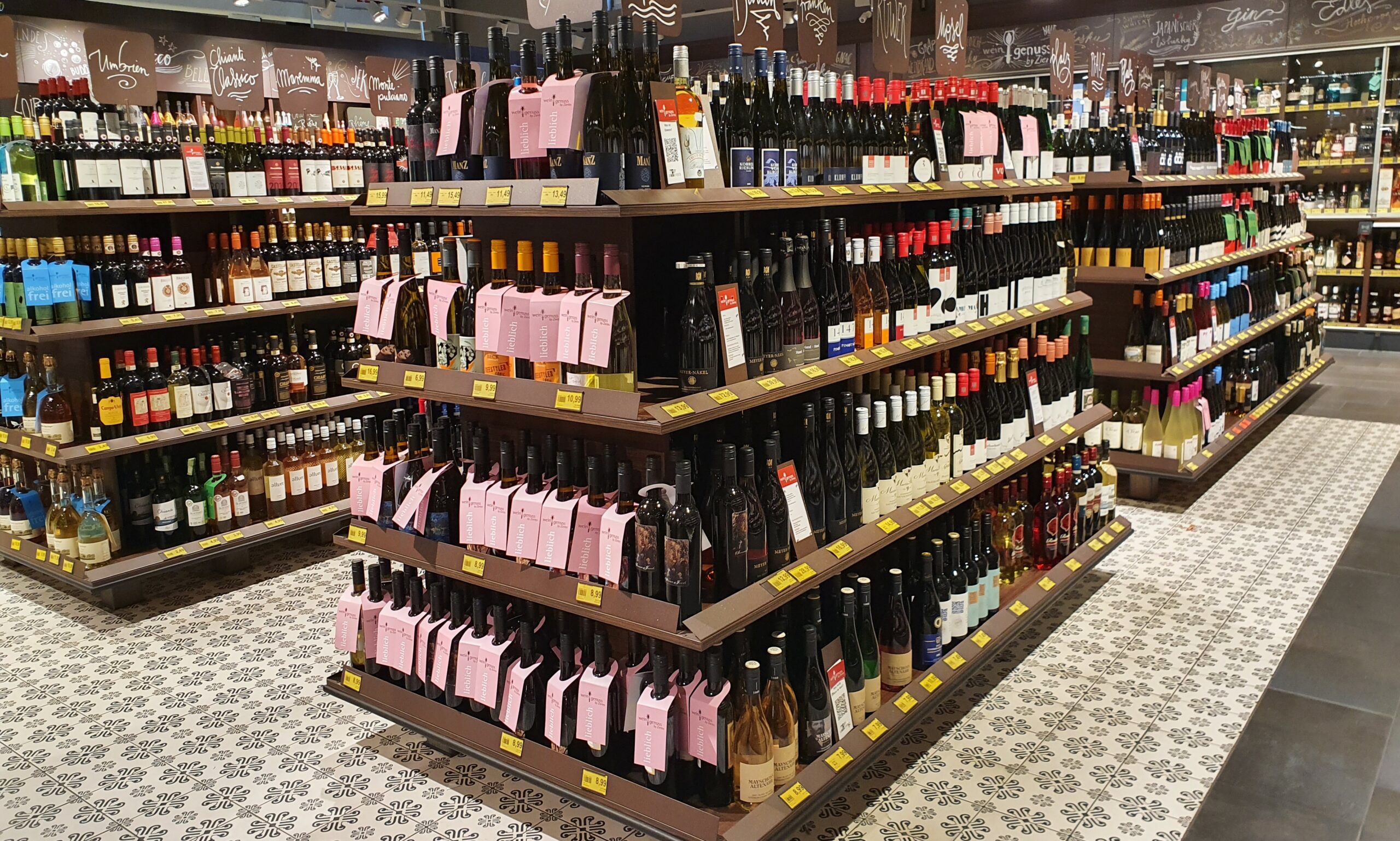Interview by Michael Kugel (Fair-Wine) with Marc Zierles from www.edeka-zierles.de in Oer-Erkenschwick.
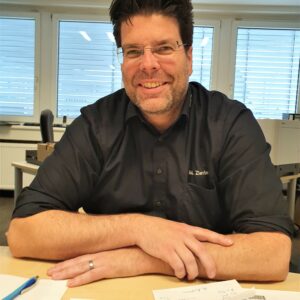
M. Kugel: Mr. Zierles, we opened the new wine department in November 2020. I say “we” because I was able to play a key role in this project at the time. What has changed since then?
M. Zierles: The wine department is very well received. The ambience is a magnet. Word has got around that our range is second to none in the region. The radius from which our customers come to us has increased. We’ve also received encouragement from cities that are a little further away from us, such as Dortmund, Gelsenkirchen and even Düsseldorf. Then, at the end of 2021, the trade journal “Weinwirtschaft” (Meininger Verlag) named us the food retail wine department of the year 2022. An award we are proud of.
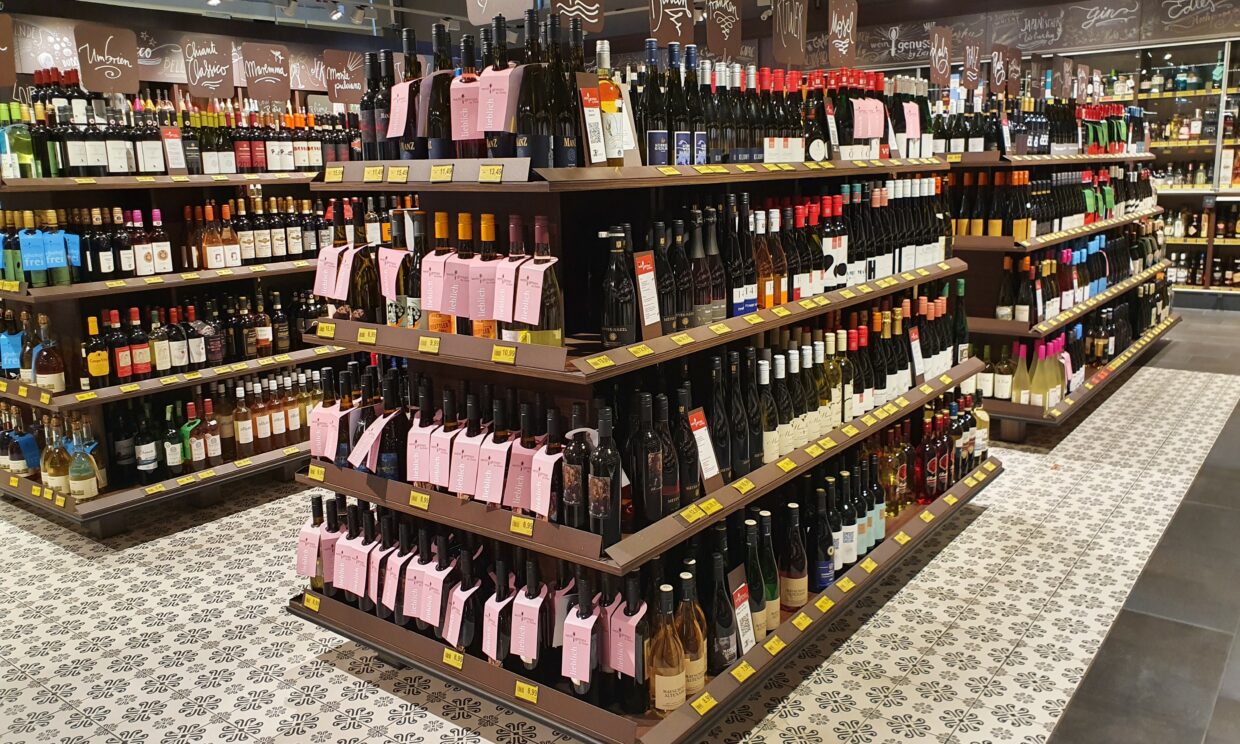
M. Kugel: The range has grown. Around 480 additional items in the same store space. What do you think is sustainable about this growth?
M. Zierles: The shopfitter Knoeppel has developed and produced a furniture concept that allows more items to be presented in the same space. In addition, the clarity has improved considerably. We were able to keep the floor and Knoeppel integrated over 50% of the old furniture into the new concept. That alone has already saved a considerable amount of CO2.
The wood for the new furniture is certified and comes from Egger Holzwerkstoffe in the Sauerland region. No new trees were felled for this, but the chipboard panels were made from residual wood that would otherwise have rotted or been burned. Basically waste wood from the region (max. radius of 300km). This means we are in the PLUS, so to speak, in terms of CO2!
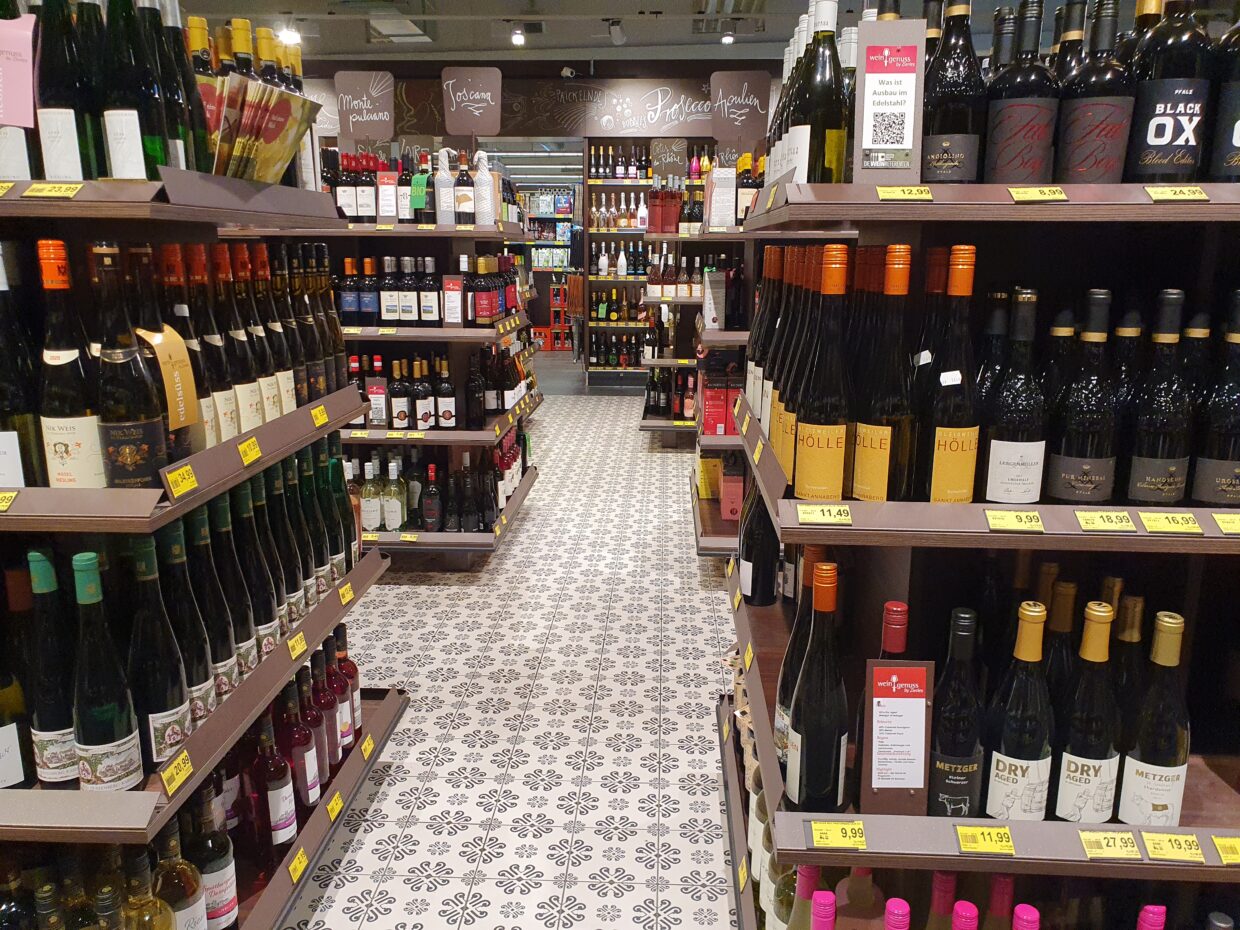
M. Kugel: Is that all?
M. Zierles: No, we have also largely dispensed with plastics and paints. The new shelves are coated with melamine resin and the interchangeable signs are made of metal. The wine information/expertise is attached with magnets, for example. The fronts of the overlay above, i.e. the decorative surfaces on more than 30 running meters, are not painted or covered with foil, but an artist has created magnificent eye-catchers with simple chalk. The old furniture has been upgraded with drawers and pull-out shelves in which the bottles are presented in a better and more professional way. These are just the most important examples.
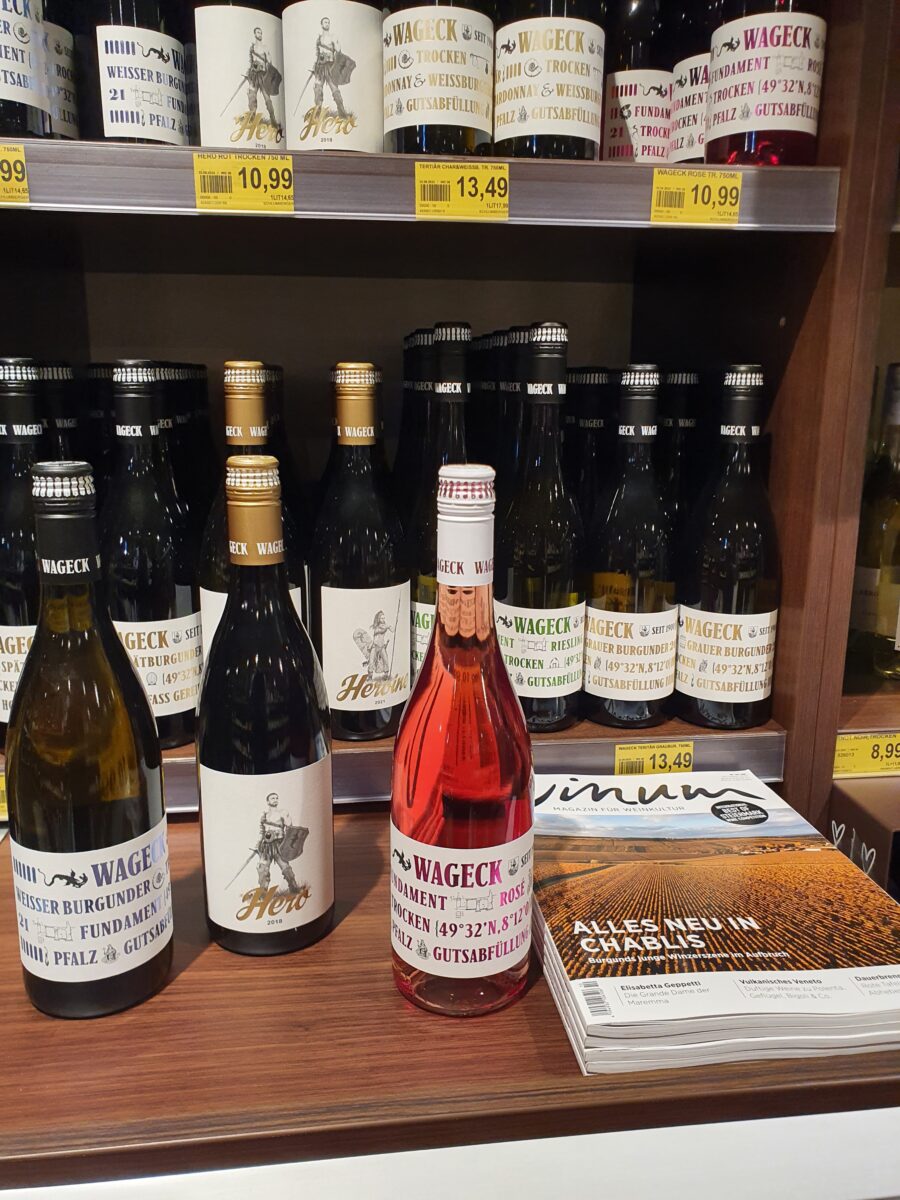
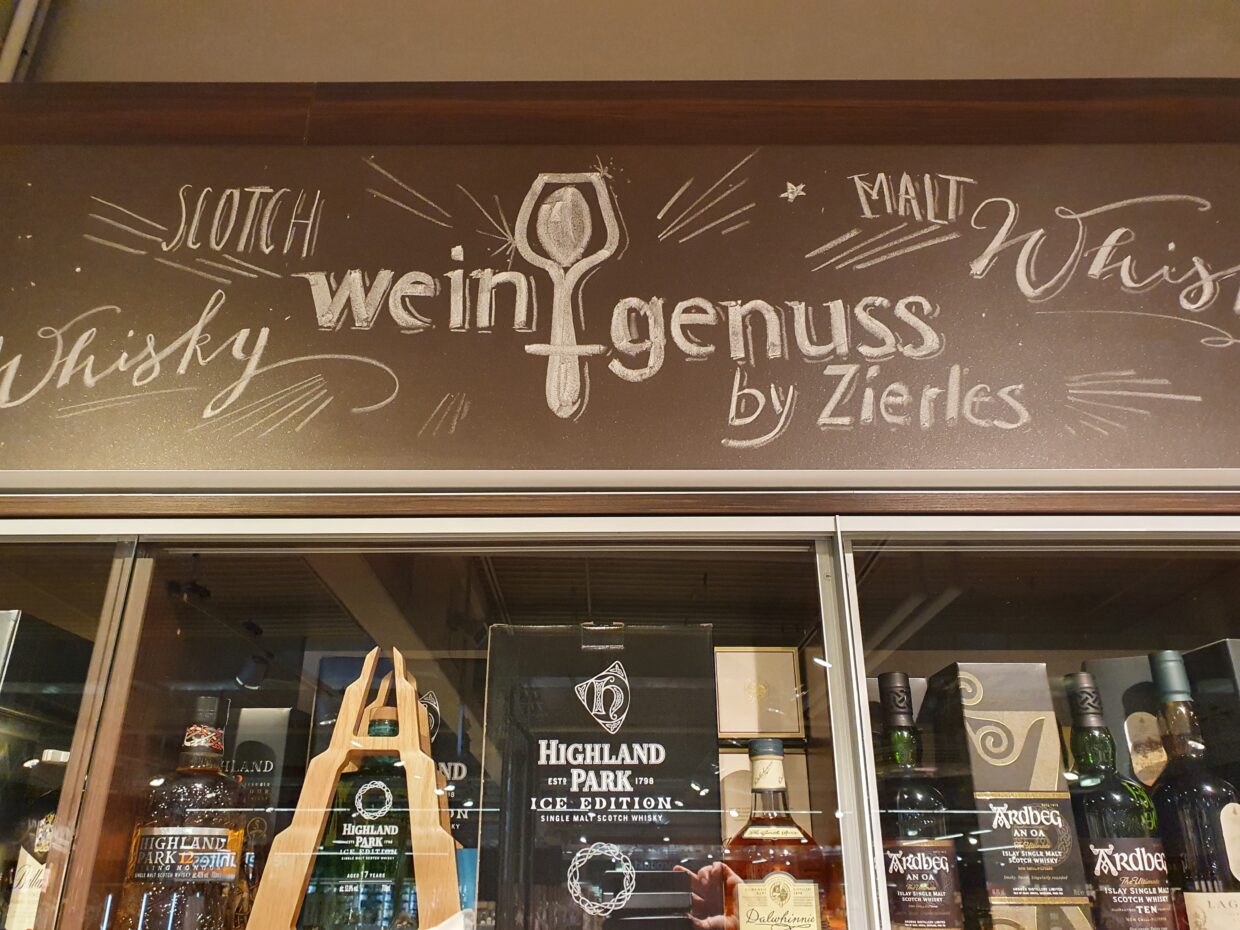
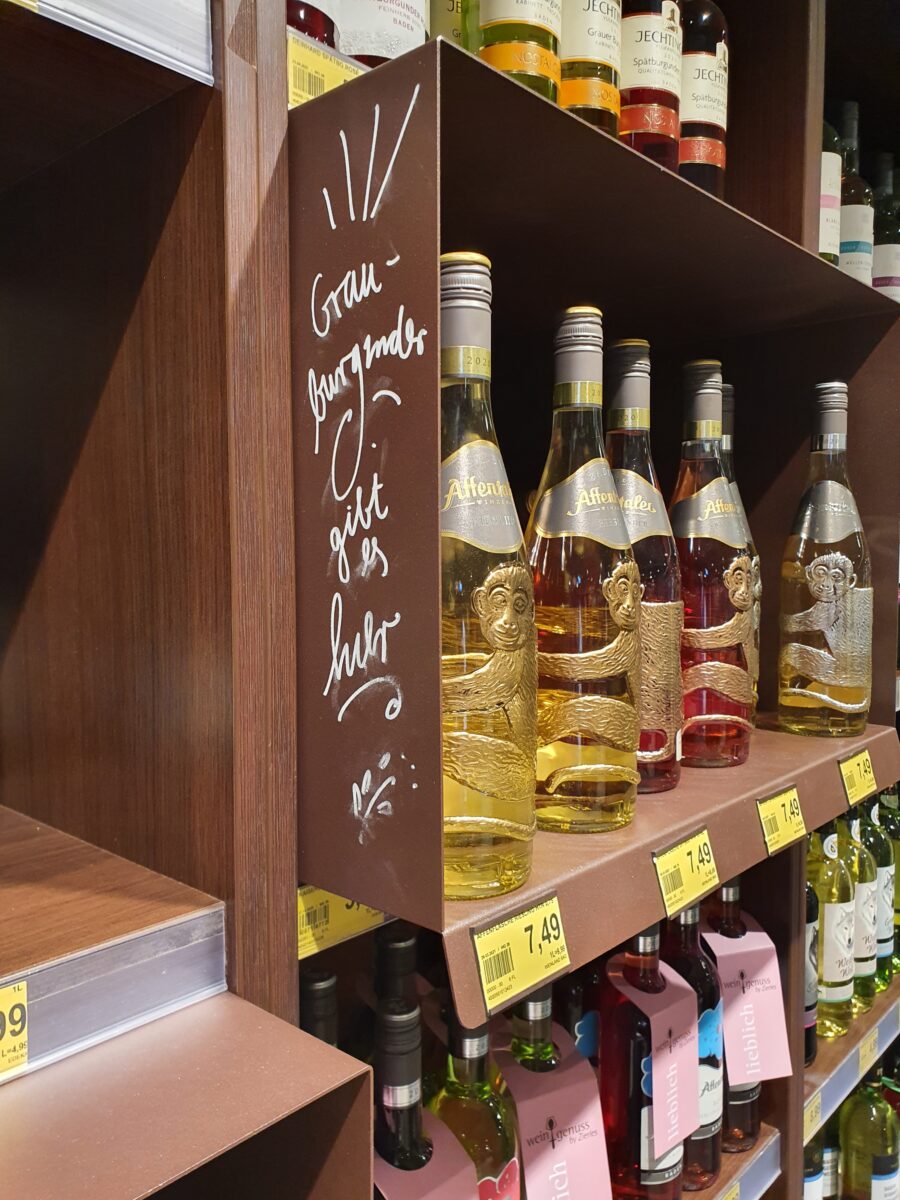
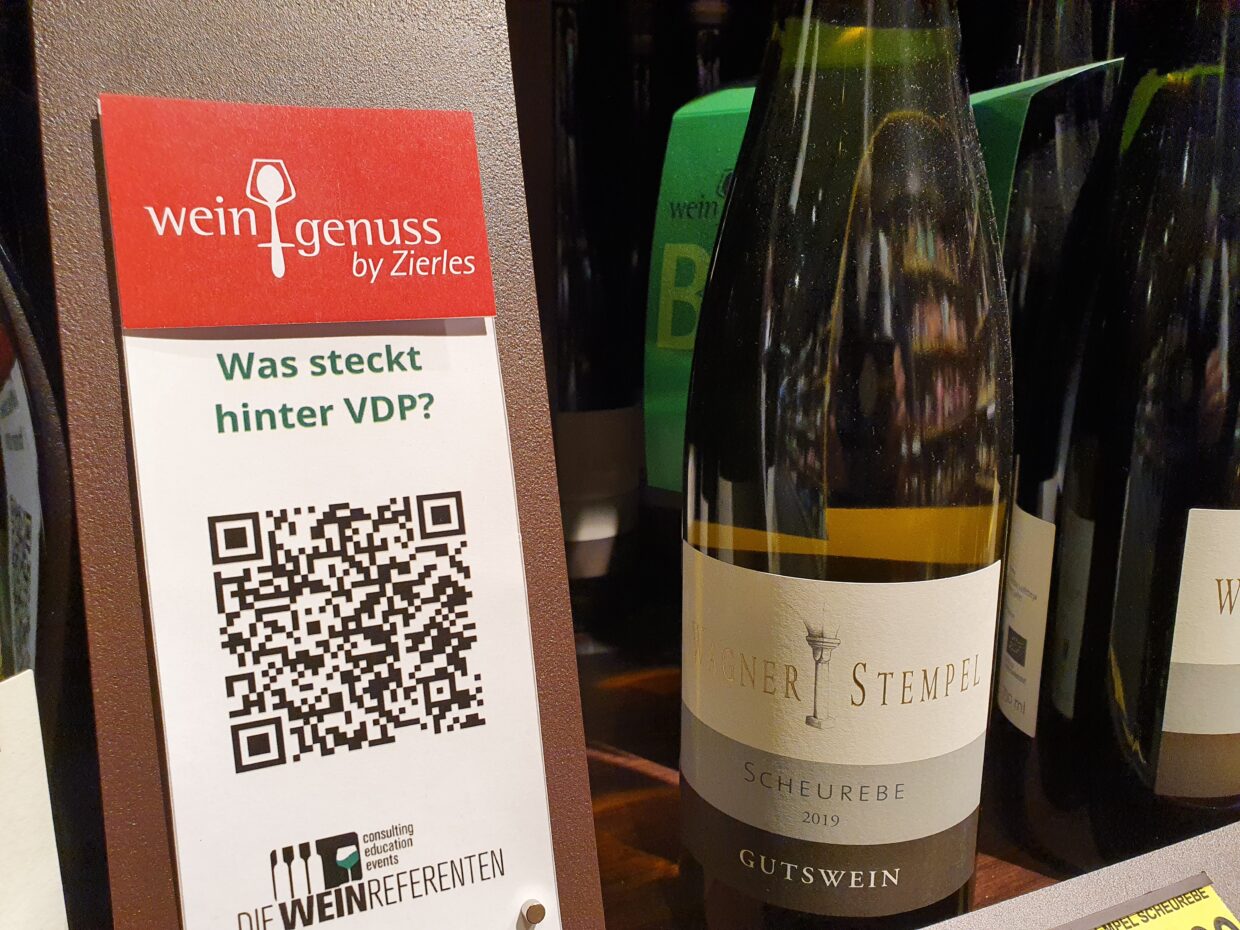
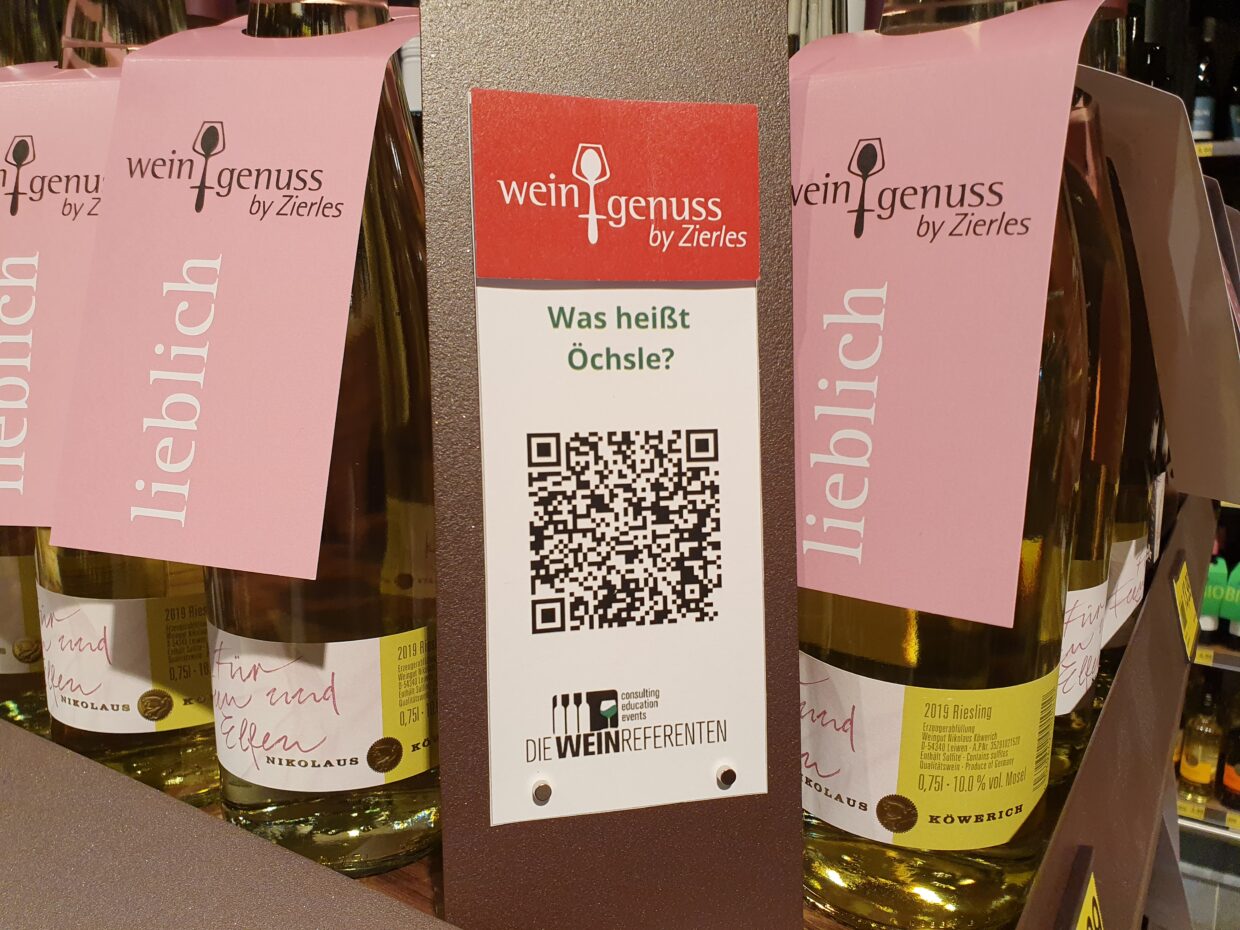
M. Kugel: What else?
M. Zierles: The efficient use of space is a great benefit. According to the new planning with Knoeppel, we didn’t need to expand or take anything away from other departments. We have created space for sustainable product ranges, which was not possible before. We have been able to list more wines from organic and biodynamic cultivation and provide shelf space to small winegrowers who are committed to sustainability. Non-alcoholic wines and sparkling wines are also a major theme, as are manufactured products that go wonderfully with wine. We didn’t have room for that before.
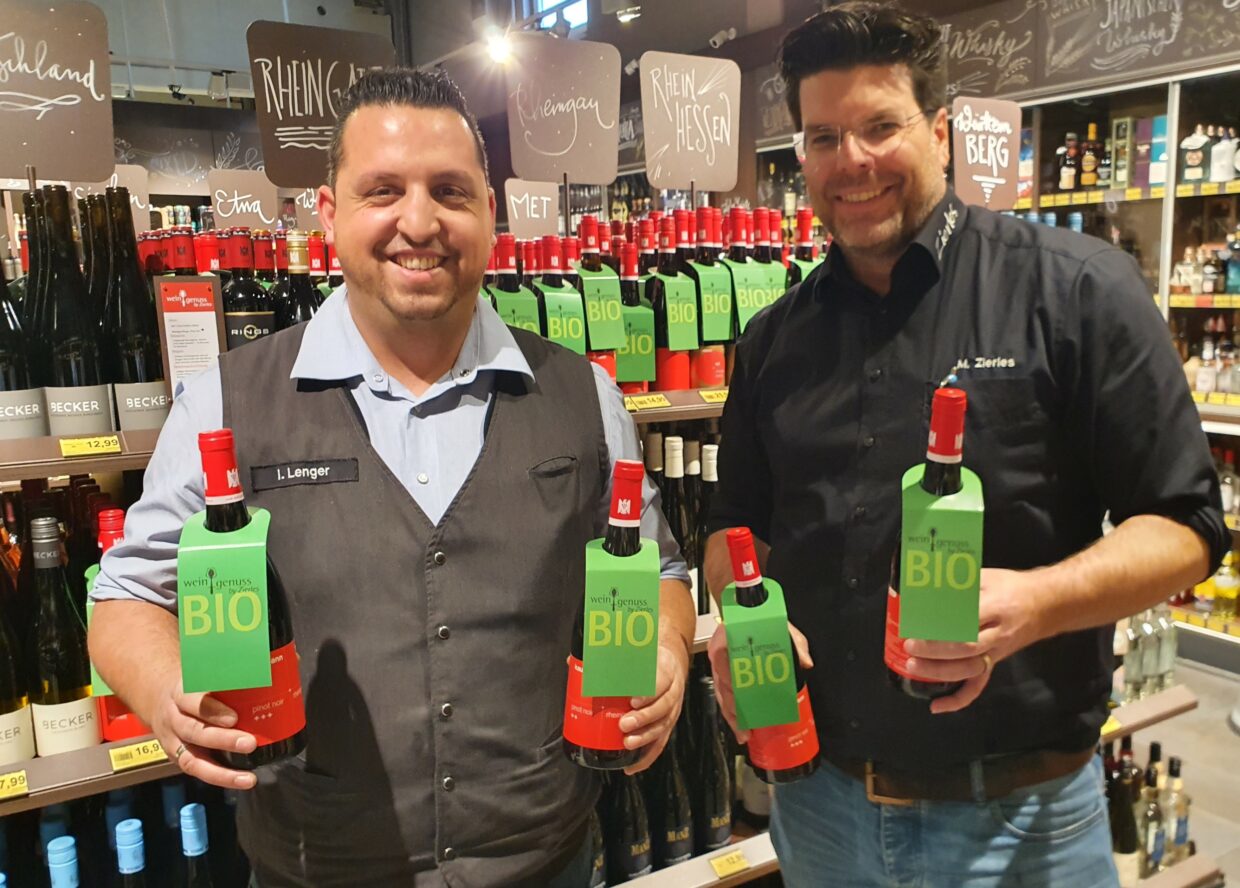
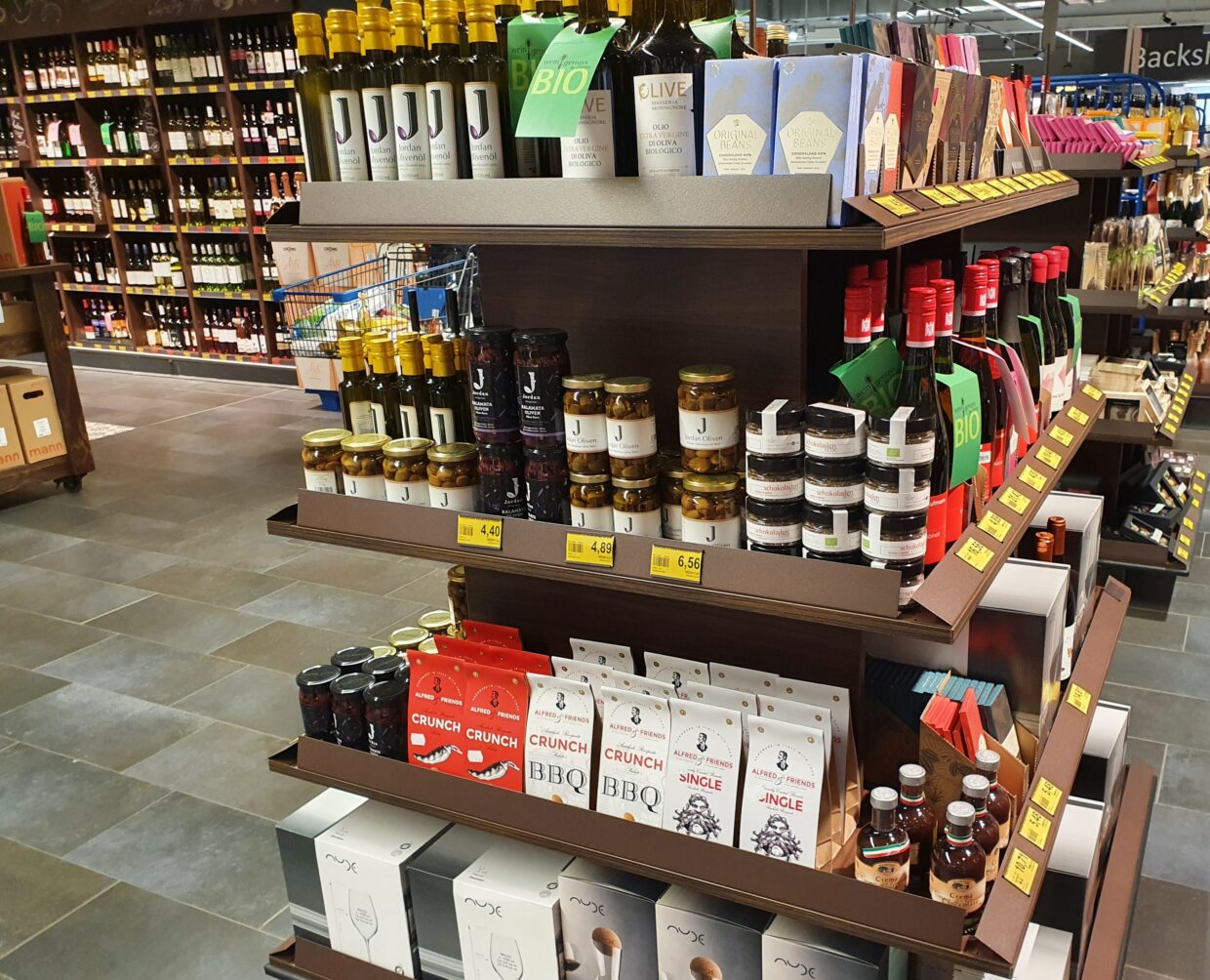
M. Kugel: Sounds expensive.
M. Zierles: Of course the conversion has cost money, but we have stayed within our budget and we have gained immense customer benefits! It is pleasing to note that sales, including all product groups, have risen by around 30% since November 2020.
M. Kugel: What about the energy costs?
M. Zierles: The department has been converted to LED. The area, like the entire building, is heated with cold recovery. We no longer have a conventional heating system. At the end of 2022, we will switch to electronic labels, which will save paper and ink. Ultimately, this also gives employees more time for customers.
M. Kugel: During my last visit, I saw that the wine dispenser will soon be in use.
M. Zierles: Yes, we currently still have a loan device. Our own is already eagerly awaited. Then customers can also take a sample sip themselves with their “Genuss-Card”. Samples can thus be better portioned, the wines are sealed with the inert gas argon and keep for many days once opened. This means we can also use up fine wines efficiently. In the end, we have less used glass.
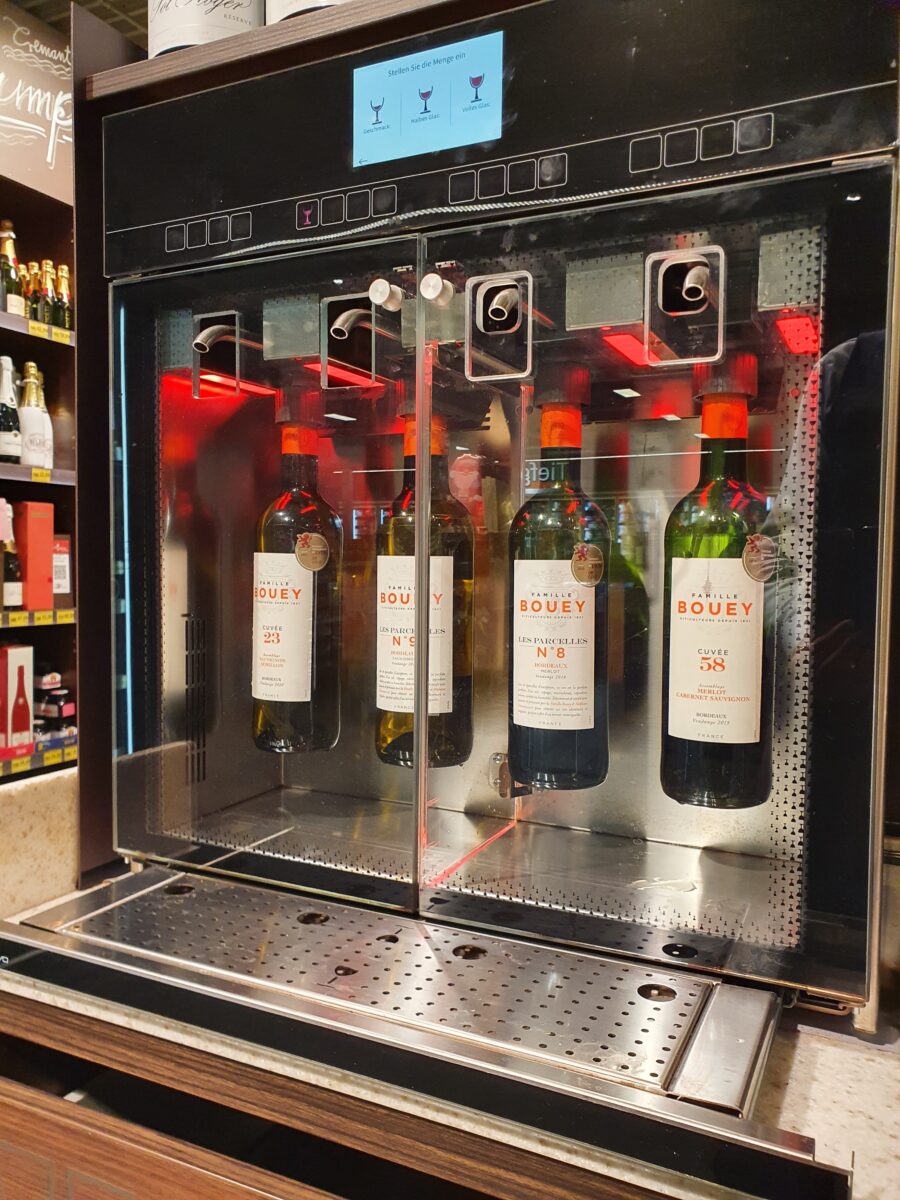
M. Kugel: Is the bar in the department accepted by customers?
M. Zierles: Due to the COVID pandemic, we haven’t had many opportunities to hold events and use the bar. But that is set to change. We had the product gondolas in the bar area specially built so that we could simply pull them to the side with the pallet truck when fully stocked. In just a few minutes we have a free activity area for up to 50 people. By the way, another sustainable feature: the glasswasher works with built-in reverse osmosis and integrated circulating air heat recovery. It saves a considerable amount of electricity and chemicals. The glasses are hygienically clean and visually flawless. Without polishing.
M. Kugel: Thank you very much for the interview.
